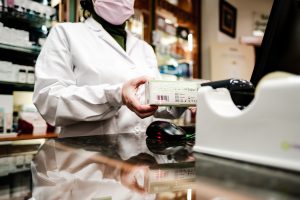Shortages of epilepsy medicines
Pharmacies in the UK may be having problems obtaining some medicines used to treat epilepsy. The way that medicines are bought and stocked has been changing over the last few years, causing occasional problems with the supply of some medicines. In this news item we set out practical steps that can help to avoid medicines shortages.

- Pharmacies across the UK are currently having problems obtaining some medicines used to treat epilepsy.
- This is happening in other countries too, not just the UK.
- The UK Department of Health and Social Care is working closely with medicines suppliers, pharmacists and other stakeholders to make sure that patients continue to have access to the treatments they need.
What should you do?
- It is important that you do not order extra supplies of medicines, as this can make things worse. Supplies may be sent to the wrong place, causing shortages elsewhere. It may also mean that medicines are wasted if they are not used.
- We recommend that families try to keep 2 weeks’ supply of their children’s medicines at home. You should contact your pharmacist in plenty of time before needing a new prescription to be filled, as this helps them to manage supplies and makes sure all patients get the medicines they need.
- A particular concern with medicines for epilepsy is that patients usually need to have the same brand of medicine every time, because different brands lead to slightly different levels of medicine in the body. If you have any difficulty obtaining your usual brand of epilepsy medicine, speak to pharmacist for help, or contact your epilepsy nurse or doctor in plenty of time.
- It is important that your child continues to take their epilepsy medicine(s) regularly as you have been told to by your doctor.
We want to reassure families that all parties involved in obtaining and supplying medicines are doing their best to make sure that patients continue to get the medicines they need.
